In this blog post, Nilesh Agarwal, an Entrepreneur with several businesses and a student pursuing his Diploma in Entrepreneurship Administration and Business Laws from NUJS, Kolkata, provides details on the registration and the organizational structure of the BCCI.
INTRODUCTION
The Board of Control for Cricket in India (hereinafter called BCCI) is the national governing body for cricket in India. It’s a consortium of state cricket associations and the state associations where they select their representatives who in turn elect the BCCI officials. Cricket in India at all levels is governed and managed by the Board of Control for Cricket in India, the wealthiest Board in the cricket world.
In this era of globalization, more and more power is handed over to private bodies within the ambit of the Constitution. Globalization has led to these private bodies to become so powerful that at times they affect the policymaking of a country. No field has remained untouched by globalization, not even sports. In today’s world sports has become a business for the corporate world and the consumers are the global audiences. Globalization has had a devastating effect on sports as a result of which the focus of legal regulation of sports has shifted from the Government onto the autonomous sports federations who now govern the sport. This aspect of globalization is particularly dangerous as it allows these private autonomous organizations, which are free from Government control[1] to create their own rules and constitution, which most likely, cater to their own convenience. They take decisions that have a profound effect on the careers of players and have a significant economic consequence[2], which ends up creating a ‘throw away culture’[3]. The throwaway culture essentially means that anyone and everyone is replaceable, and if an individual does not follow these economic decisions, then they can be replaced. In India, an example of such an autonomous organization that is outside the realm of Government control is the Board of Control for Cricket in India (hereinafter “BCCI”), which controls the game of cricket.
This report will discuss the background of the BCCI including its formation, the Right to Information Act controversy, questioning whether the BCCI should be a State and will focus on the landmark judgment by the Supreme Court in the case of Board of Control for Cricket in India vs. Cricket Association of Bihar and Ors[4].
BCCI: BACKGROUND
The BCCI acts as a governing body for cricket in India and is based out of Mumbai. It is the richest sporting body and the richest cricket board in the world[5].Over the years, BCCI has become akin to a “corporate colossus”, with an annual surplus of Rs.385 crore and total assets worthRs.3,308 crore, as reported by India Today in May 2013[6]. BCCI has indeed come a long way since its formation in December 1928. Initially, BCCI functioned as an “unregistered association, and in 1940 it got registered under the Societies Registration Act, 1860. Later, with the enactment of the Tamil Nadu Societies Registration Act, 1975 (hereinafter “TSRA”), it was registered once again as a private club consortium”.[7] Over the years the BCCI has emerged as a monopoly by regulating cricket in India at all levels, be it the “grass-root level, the national level, the international level or even private cricket”[8] (for example the Indian Premier League). However, the one lesson we have learned from time is that monopolies don’t necessarily produce the best results. For example “Microsoft’s domination of the desktop computer through Windows operating systems did not produce the best software (Windows Vista[9]). The US’ monopoly of geopolitical power during 1990-2010 only brought more war and political strife.”[10] The function of a monopoly is to ensure that it retains power and uses that power to make more money while not caring about serving its customers. In India, BCCI is doing exactly that by using its monopoly in India to perpetuate its power and money-making abilities.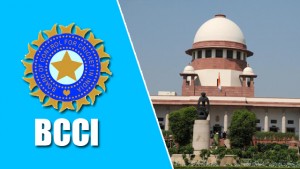
The constitution of BCCI forms a Working Committee and various other Committees and Members. The BCCI’s constitution provides for annual elections at its Annual General Meeting (AGM) for all posts, with a bar on the re-election of an incumbent president beyond two consecutive years, “provided that the General Body may in its discretion re-elect the same person as president for the third consecutive year”.
The main working of BCCI’s daily affairs is looked after by the Working Committee. The President is mainly questioned about its working, and he leads the Board officially. The Secretary helps in the operation of the bank accounts as a sole signatory and also his name is used when the Board sues or is sued by an outsider if disputes arise.
Over the years, cricket in India has had a dark cloud cast over it with allegations of match-fixing and betting which have questioned the working of the BCCI as a regulatory body.[11]BCCI has not only faced criticism from the citizens of India but also from its own members. An anonymous senior board official described BCCI as a regulatory body which stands for control and not cricket, which exists not for cricket or the players, but for itself. He further went on to say that “It is an edifice built on power, arrogance, money, and the insecurity that comes with the fear of losing all of those things.”[12]
RIGHT TO INFORMATION ACT CONTROVERSY
The one thing in India that an individual cannot escape from is not traffic, but a scam. Be it housing, coal or even the allocation of 2G spectrum, there is bound to be a scam somewhere or the other. Similar is the situation when it comes to cricket in India[13][14]. With cricket getting murkier and murkier by the day, BCCI has come under a lot of scrutiny over the years and with an increasing number of Indians having requested information on its financial dealings. The BCCI has been in the right by refusing to divulge the concerned information as it did not come under the purview of the Right to Information Act, 2005 (hereinafter “RTI Act”) for it was not considered a “State” under Article 12 of the Constitution.
To bring any entity as a public authority within the ambit of the RTI Act, it has to satisfy at least one of the requirements of Section 2(h) of the RTI Act[15], as under:
Section 2 (h): “public authority means any authority or body or institution of self-government established or constituted:
(a) by or under the Constitution;
(b) by any other law made by Parliament;
(c) by any other law made by State Legislature;
(d) by notification issued or order made by the appropriate Government, and includes any —
(i) body owned, controlled or substantially financed;
(ii) non-government organization substantially financed, directly or indirectly by funds provided by the appropriate government”.
The argument that BCCI used was that it did not fall under any of the categories that were given in Section 2(h) of the RTI Act; hence it was not a public authority. As a Society under the Tamil Nadu Societies Registration Act, 1975, BCCI has not been established by or under the Constitution nor has it been constituted by any law made by Parliament or any State Legislature, “nor has been constituted or established by notification issued, or order made by any government, nor it gets any funds directly or indirectly from any government and does not have any nominee on its board, nor is subject to audit by CAG.”[16]
However, according to BCCI officials, an individual need not worry about the financial dealings of BCCI being looked into by auditors. As Mr. Gangaraju, Chairman of the BCCI Finance Committee said, “We are supposed to send our auditors’ reports to the BCCI. If there is a misuse of money, one can detect it. Like any other government department, the BCCI sends our reports to its auditors. So, the BCCI has a system to check the use of money given to the state associations.”[17]Thus, even though an individual can get information related to certain scams in the country, getting information on the financial wrong doings of BCCI would be close to impossible unless it magically becomes an instrument of the State.
WHY IS THE BCCI NOT A ‘STATE’
Article 12 of the Indian Constitution states that “In this part, unless the context otherwise requires, “the State” includes the Government and Parliament of India and the Government and the Legislature of each of the States and all local or other authorities within the territory of India or under the control of the Government of India”[18]
Over the years, BCCI has been brought to court with its legal status being questioned in various cases viz; Mohinder Amarnath & others vs. BCCI[19], Ajay Jadeja vs. Union of India & others[20] and Rahul Mehra and Anr. vs. Union Of India[21] before the Delhi High Court. The other decisions are by the Supreme Court[22]: BCCI vs. Netaji Cricket Club and Ors[23], Zee Telefilms Ltd & Anr vs. Union of India & Ors.[24]and A.C. Muthiah vs. BCCI & Anr[25]
In the Mohinder Amarnath’s case, the BCCI was held not to be an instrument of the State whereas in the Ajay Jadeja case the Court held that writs could be maintained against the BCCI. However, the case was not held to be a precedent because Mr. Jadeja withdrew his writ petition. It was only in the Rahul Mehra case that the Court held in the affirmative that writs could be maintained against the BCCI; however, it did not express a comment on the BCCI’s status as an instrument of the State as per Article 12. The decision to maintain writs against BCCI was done keeping BCCI’s monopolistic nature in regulating and controlling the game of cricket in India and the nature of its duties and functions that it carries out. It relied on Article 226(1) which says “Notwithstanding anything in Article 32 every High Court shall have powers, throughout the territories in relation to which it exercises jurisdiction, to issue to any person or authority, including in appropriate cases, any Government, within those territories directions, orders or writs, including writs in the nature of habeas corpus, mandamus, prohibitions, quo warranto and certiorari, or any of them, for the enforcement of any of the rights conferred by Part III and for any other purpose” [26] The High Court held that the BCCI did fall under the Article as the words “any person or authority” did include private bodies carrying out public duties. 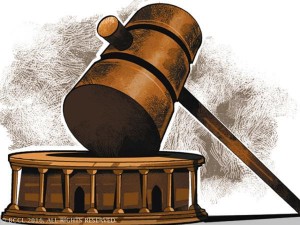
Subsequently, the Supreme Court in the case of BCCI vs. Netaji Cricket Club and Ors acknowledged BCCI’s monopoly over Cricket in the country. The Honorable Court with regard to the enormity of power exercised by BCCI held that BCCI is bound to follow the doctrine of fairness and good faith.[27]
It was only in the case of Zee Telefilms Ltd and Anr vs. Union of India and Ors[28] in 2005 that the Supreme Court addressed and elaborately discussed the status of BCCI as an instrument of the State as per Article 12. The Supreme Court came to the conclusion that BCCI was not an instrument of the State. It ultimately held that since BCCI is not “financially, functionally and administratively controlled by the Government cumulatively, it could not be held as a State, and thus the writ petition under Article 12 was not maintainable.”[29] The Court said that the only amount of control that the Government had over BCCI was purely regulatory in nature and noting more. Even though BCCI does carry out some duties akin to a State, violation of these duties will allow citizens to file Writ petitions against BCCI as per Article 226. This decision was reaffirmed in the case of A.C. Muthiah vs. BCCI & Anr[30] where the Court held that the BCCI was a “private autonomous body, and its actions had to be judged only like any other similar authority exercising public functions.”[31]
In the case of Board of Cricket Control in India vs. Cricket Association of Bihar and Ors[32]the issue of BCCI being a State instrument was brought up. The Court relied on the principles laid down in the cases of R.D. Shetty vs. Union of India[33]and Ajay Hasia vs. Khalid Mujib[34]. In the case of R.D. Shetty vs. Union of India[35] the Court had laid a five-point test to determine whether an “other authority”[36] would be an instrument of the State. “As per the test the classifications were:-
- The entire share capital is owned or managed by the government;
- It enjoys a monopoly status;
- Department of Government is transferred to corporation;
- Functional character is governmental in essence;
- Deep pervasive State control” [37]
The Court, while deciding whether BCCI is a State Instrument took into account the principles of an absence of “deep and pervasive control and lack of substantial government funding”[38] and decided to rule out BCCI as ‘state’ under Article 12. While ruling out BCCI as a State, the Supreme Court upheld the decision in the case of Zee Telefilms Ltd and Anr vs. Union of India and Ors[39]and reiterated that even though BCCI was not a State instrument, it was still liable to Writ petitions as per Article 226, if it violates any of its important public functions.
WHY THE BCCI SHOULD REALLY BE A STATE
The dissenting judgment in the case of Zee Telefilms Ltd and Anr vs. Union of India and Ors[40]was made by the bench comprising Justice Sinha and Justice Variava, who were of the opinion that BCCI should be a ‘State’. The dissenting judgment was inspired by Justice Matthew’s opinion in the case of Sukhdev Singh v. Bhagatram[41] which propounded the Public Functions Test as a criterion to find out instrumentalities of state under the expression other authorities’ within Article 12. This test is often viewed as a response by the judiciary to globalization. According to Justice Sinha, the requirements that the “other authorities” should fulfill were:
“(a) Finding of state financial support together with an unusual degree of control over the management and policies of the body that may lead to an inference that the body is a State entity.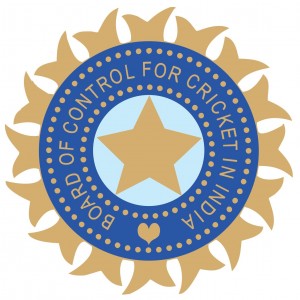
(b) Another important indicator is discharging of important public function with state support being an irrelevant consideration.
(c) A corporation is an agency or instrumentality of the government for carrying on a business for the benefit of the public.”[42] The test also states that “The combination of state aid and the furnishing of an important public service may result in a conclusion that the operation should be classified as a state agency. If a given function is of such public importance and so closely related to governmental functions as to be classified as a government agency, then even the presence or absence of state financial aid might be irrelevant in making a finding of state action. If the function does not fall within such a description, then the mere addition of state money would not influence the conclusion.”[43]
The Minority Bench in the Zee Telefilms case was of the opinion that selecting the Indian Cricket Team does classify as a public function and relied on the Rahul Mehra case which said “when a government stands by and lets a body like the BCCI assume the prerogative of being a sole representative of India for cricket by permitting BCCI to choose the team for India for appearance in events like the World Cup, then it necessarily imbues the BCCI with the public functions at least in or so far as the selection of the team to represent India and India’s representation in International Cricket is concerned.”[44] The bench was also of the opinion that a body discharging public functions and exercising monopoly power would be an authority under Article 12. The BCCI controls and regulates the game of cricket, and even has a final say in the matters of selection and disqualification of players, umpires and others connected with the game touching their right to freedom of speech and occupation as seen with the whole Indian Cricket League (hereinafter “ICL”) fiasco. The players who participated in the tournament were banned from playing for India and only were considered to be eligible to play for their country after a one-year ‘cooling down period’[45]. Prior to the ‘cooling down period, on’ the players had to apologize to the BCCI for making a mistake by joining the ICL. The BCCI’s monopoly over the game extends to such a level that it is the sole body in the country that makes rules and regulations which is a state function in terms of Entry 3 of the Seventh Schedule to the Constitution, hence acquiring the status of a monopoly.[46]It frames pension schemes and incurs expenditure on coaches, trainers, etc. It sells broadcast and telecast rights and collects admission fee to venues where the matches are played.[47]
WHAT EVENTUALLY HAPPENED
The case of Board of Cricket Control in India vs. Cricket Association of Bihar and Ors[48]was considered as a landmark judgment. The case was a result of a Public Interest Litigation filed by the Cricket Association of Bihar against a probe panel on the Indian Premier League spot-fixing. No, it did not classify BCCI as a State Instrument, but it did bring a mammoth change within the BCCI. The case arose as a result of the excessive power that has been bestowed to BCCI by making it an autonomous body. Being an autonomous body BCCI has the power to make laws to regulate itself and amend these laws as per its own whims and fancies. An example of this was the amendment to the BCCI’s Clause 6.2.4.
Prior the amendment, the clause read as follows “No Administrators shall have, directly or indirectly, any commercial interest in the matches or events conducted by the Board.”[49] This Clause was amended in September 2008, nine months after the inception of Chennai Super Kings, an IPL franchise formed in January 2008.The Chennai franchise was sold to India Cements for $91 million, making it the fourth most expensive Team in the League behind Mumbai, Bangalore and Hyderabad.[50] India Cements acquired the rights to the franchise for 10 years. The current ICC Chairman, Mr. N. Srinivasan was the de facto owner of the Chennai Super Kings, by means of his position as the Vice-Chairman and Managing Director of India Cements Ltd. The conflict of interest arose in September when BCCI elected Mr. Srinivasan as the Secretary of BCCI. However, in that very meeting an amendment was made to clause 6.2.4 which then read as “No Administrators shall have, directly or indirectly, any commercial interest in the matches or events conducted by the Board excluding events like IPL or Champions League Twenty 20.”[51]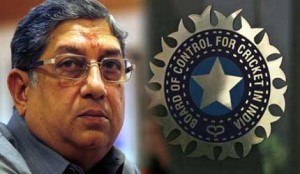
This amendment was earlier challenged in the case of Muthiah vs. BCCI &Anr[52] where it was held that Rule 6.2.4 shall have to be tested on a threefold basis viz. (i) whether the amendment is made by the authority competent to do so; (ii) whether the authority competent to bring about an amendment has followed the procedure prescribed for the same; and (iii) whether the amendment falls foul of any statute or principle of law, violation whereof cannot be countenanced.[53] It was held that BCCI was a private autonomous body who was the authority competent enough to make that amendment.
However, the amendment was in contention to be in violation of the principles of natural justice. In an ideal world the principle of natural justice would not allow any members of the BCCI to hold any commercial interest in the events organized by BCCI. Holding a commercial interest in such events would bring about a serious conflict of interest between the duties of administrators on the one hand and their personal/commercial interest on the other, which was exactly what the amendment leads to.
The first instance of a conflict of interest arose when the BCCI awarded compensation of a sum of Rs.10.40 crores to Chennai Super Kings on account of the cancellation of the Champions League Tournament 2008. An undisputed fact was that Mr. Srinivasan was among those who contributed to the making of, and taking the decision to award that amount as compensation to his own Team. It is true that a similar amount was awarded to Rajasthan Royals the other finalist, but that does not mean that “Mr. Srinivasan, participated and deliberated in the proceedings leading to the award of a hefty amount of compensation, he was not privy to a self-serving decision that benefited India Cements Ltd. a company promoted by Mr. Srinivasan. The fact that some others also participated in the decision-making process as members of the IPL Governing Council does not cure the legal flaw arising out of the benefactor also being the beneficiary of the decision.”[54]
The next instance of a conflict of interest arose when a similar award of a sum of Rs.13.10 crores came in the year 2009, which too fell afoul of Mr. Srinivasan’s duty on the one hand, and interest on the other. “The decision to award an amount higher than the one awarded earlier appears to have led to public criticism raising the pitch further for Mr. Srinivasan’s removal from the BCCI on the principles of conflict of interest. Return of the amount because of a public outcry may no doubt mean that Mr. Srinivasan tried to come clean on the subject even when his company may have suffered a loss, but it may as well mean that the return of the amount came only under public pressure and in recognition of the fact that the amount was not actually due and payable and yet was paid to the detriment of BCCI, who is a trustee of general public interest in the sport of cricket and everything that goes with it.”[55]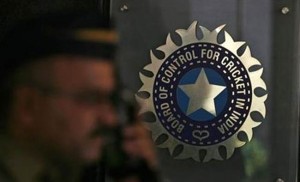
The third and most glaring example where Mr. Srinivasan’s commercial interest came in direct conflict with his duty as President of BCCI was when his son-in-law Mr. Gurunath Meiyappan was caught betting on and against his own Team. “A clear conflict of interest has arisen between what is Mr. Srinivasan’s duty as President of BCCI on the one hand and his interest as father-in-law of Mr. Gurunath Meiyappan and owner of Team CSK on the other. The argument that Mr. Srinivasan owns only 0.14% equity in India Cements Limited (ICL) is of no avail, if not totally misleading, when we find from the records that his family directly and/or indirectly holds 29.23% of the equity in ICL with Mr. Srinivasan, his wife and daughter as Directors on the Board of that Company.”[56]
Citing these instances the Court decided to strike down the amendment citing that the amendment was in violation of public policy. Over time, the idea of public policy has not remained static but has evolved. In today’s world public policy comprises of “those principles of law that ensure justice, fair play and bring transparency and objectivity and promote probity in the discharge of public functions” [57] If any such rule, contract or arrangement “defeats or tends to defeat the high ideals of fairness and objectivity in the discharge of public functions no matter by a private non-governmental body will be opposed to public policy.”[58]The amendment made by the BCCI to rule 6.2.4 permitted and protected the Administrators “to have commercial interests in breach or conflict with the duty they owe to the BCCI, or to the people at large must be held to be against public policy, hence, illegal.”[59]
WHAT NOW FOR THE BCCI
All good things must come to an end and this is exactly what happened in the case of the Board of Cricket Control in India vs. Cricket Association of Bihar and Ors[60].While delivering the judgment in the case, the Supreme Court affirmed that BCCI was amenable to the writ jurisdiction of the High Court under Article 226 of the Constitution of India. A writ jurisdiction is essentially the right to seek a remedy against the state, the route open to a private citizen questioning a state or state body of any wrongdoing.[61]The court pointed out that by picking the Indian Cricket Team and by regulating the sport in the country, BCCI was carrying out public functions and any violation of such a function would open the doors for litigation under Article 226, even when it is not ‘State’ within the meaning of Article 12.[62]The Court also formed a Committee which was to determine the punishment for the accused found guilty, and the fate of the two IPL teams, Chennai Super Kings and Rajasthan Royals.
The Committee comprised of retired Chief Justice of India, RM Lodha, and retired Supreme Court judges, Ashok Bhan and R. Raveendran. The Committee had been tasked with to determine appropriate punishments for Gurunath, Kundra and their respective franchises, Chennai Super Kings and Rajasthan Royals, following on from the Mudgal Report, examine the role of Sundar Raman, the IPL Chief Operating Officer in the IPL 2013 scandal and, if applicable, impose a suitable punishment on him on behalf of BCCI. The Committee was also tasked with suggesting amendments to the processes followed by BCCI with a view to preventing sporting frauds and conflict of interests, and also to streamline the Board’s working to make it more responsive to the expectations of the public at large.
The Committee Report is seen as a cleanup of cricket in India and keeping that in mind the Committee decided to suspend Chennai Super Kings and Rajasthan Royals because of the 2013 betting scam involving their top officials, Gurunath Meiyappan and Raj Kundra. Mr. Meiyappan and Mr. Kundra were suspended for life from any cricketing activity.
This punishment was decided due to the “disrepute”[63] and disgrace brought by their actions to the game of cricket, hence they did not deserve any leniency. “The fact that Mr. Meiyappan was an integral part of CSK, he ought not to have indulged in corrupt practices. Any person who has true passion for the game will never be involved in betting. Mr. Meiyappanhas not only indulged in betting but he has brought disrepute to cricket & the IPL. Being the face of the franchise, Mr. Meiyappan’s actions reflect on the owners of India Cements,”[64]said Justice Lodha.The panel held the same view for Mr. Kundra’s actions.
One of the biggest changes coming out of the ruling is that the Courts are now willing to go into micromanagement, and deep into the governance structure of a sports body. This is considered as the area where the Court has moved forward from the Zee Telefilms case. Up till the case of the Board of Cricket Control in India vs. Cricket Association of Bihar and Ors, BCCI’s stance was that since it was an autonomous body only its public functions could be challenged and not any of the amendments the BCCI made to its rules and regulations. To quote a lawyer, whose clients include eminent sports personalities, “The most significant part is how specific the process has been laid out to determine the punishment. They have named the Committee. They have given them specific guidelines. They have made the findings a fact. This is the whole exercise of power under Article 226.”[65] Earlier the Court’s decision used to be more of an oversight and would tell the accused that a particular function has not been carried out properly and that they should go back and do it properly. Therefore, constituting and naming the Committee was considered a big development.
As per Gopal Sankaranarayanan, an advocate in the Supreme Court, the case of Board of Cricket Control in India vs. Cricket Association of Bihar and Ors is one of the first instances in which the functioning of the BCCI has been scrutinized with reference to actual cricket. “It is not a question of telecast rights. This is more in the nature of public interest litigation because it is dealing with a lack of transparency, conflict of interest, and match-fixing. All these are important issues, (for) all of which even a fan can file a petition.”[66]Thus, a potential scenario now where the BCCI or the state associations can be pulled up would be with team selections. “If a parent of a player feels he has been left out for whatever reasons, he/she could easily file a writ asking for procedures, etc. This need not stop only at team issues. It could also be administrative selections.”[67]
As a result of the Supreme Court’s decision to strike down the amendment to Clause 6.2.4, no one with any commercial interests in any BCCI events could contest for the BCCI elections. This resulted in a difficult decision for Mr. Srinivasan who effectively had to choose between the BCCI presidential post and owning the Chennai Super Kings.
REGISTRATION OF THE BCCI IN TAMIL NADU
The reasons for BCCI’s registration in Tamil Nadu, backdrops to the pages of history. When the Board was established, Bombay got the upper hand and became it’s headquarters. This was because Bombay was facilitated with an advanced port which the English cricket administrators used for transport and communication purpose. But along with Bombay, eventually, two other offices were established, viz., Madras and Delhi, so that the Board can have better control over the game of cricket in India. Yet, BCCI continued to operate as an unregistered body.
During the phase of Second World War, Mr. Paramasiva Subbarayan, the former Chief Minister of Madras Presidency, was appointed as the 5th President of BCCI (term: 1938-46). He was a Madras-based administrator and operated all the important affairs of the Board from the Treasury Office of BCCI in Madras. Thus, it was during his tenure and under his initiation that BCCI got registered under the Central Legislation- Act XXI of 1860 at Madras on 28/11/1940. 
During the term of 17th President of BCCI (Mr. M. Chinnaswamy), the body was deemed registered under Tamil Nadu Societies Registration Act, 1975, when the act came into force on 22/05/1978. This was in accordance with the provisions of section 53 of the said statute.
Other reasons for such registration may be stated herewith:
- Simple process of registration (current provision- Chapter II of Tamil Nadu Societies Registration Act, 1975), Guided by its own Rules and Regulations.
- The limited scope of interference by an outsider.
- Tax exemption due to charitable nature of operation- affiliation to certificates 12A and 80G of the Income Tax Department
CONCLUSION
Cricket in India is one of the few activities that bring together the people of the country, apart from religious ceremonies. The sport has an impact on the day to day lives of almost everybody in India, and cricketing results are often the reason behind national pride and patriotism. Over time the sport has been rocked by scandals and controversy and many a time at the center of it has been the BCCI.
Over the years BCCI had developed into a corporate colossus which only cared about making money. The BCCI, being a private autonomous organization had been free from government control which resulted in them creating their own rules and constitution, which catered to their own convenience. By holding a monopoly over Cricket in India, BCCI amassed an incredible amount of power and in that process forgot a very important thing which was “with great power comes great responsibility.” After becoming powerful, they became reckless and grew greedy for more money and more power. The amendment to Clause 6.2.4 of the BCCI was the most glaring example of how BCCI has remained hungry for power and money. Once the entire betting and match-fixing scandal broke out the BCCI did everything in its power to save face. They appointed a Committee to ‘investigate’ and probe into the matter, which surprisingly gave a clean chit to almost everyone who was accused, citing a ‘lack of evidence’ against them. This came as a shock to the entire nation as there was enough evidence floating in the media and on the World Wide Web against the accused. It was at this point that the judiciary finally decided to step in and decided to form a separate committee to investigate and a separate committee to decide the punishment for the accused.
The best thing about the Indian Judiciary, even though it sits on the sidelines, is that it hasn’t remained stagnant and has evolved to meet the changes in Society. To fight the malpractices of globalization, the Judiciary developed something called a public functions test to put a check on these private autonomous bodies. As a result of this test, BCCI was made amenable to writs under Article 226, and by doing so the Judiciary dislodged the BCCI Administrators from a very comfortable couch that they were sitting on, once and for all.
The decision taken by the Court should be considered as a stepping stone for ensuring more transparency within BCCI. The Legislature should strongly consider enforcing more regulations on BCCI to maintain certain checks on the body. Without having any regulations on itself we have seen BCCI grow as a body to become one of the most powerful organizations in the world. The BCCI’s influence isn’t restricted to India but it also extends to the International Cricket Council (hereinafter “ICC”). Be it the “Monkeygate” Scandal or the Umpire Decision Review System, the ICC always listens to the BCCI. By leaving the BCCI unregulated may just see it develop into a body like The Fédération Internationale de Football Association (hereinafter “FIFA”) and unearth a large scandal in the years to come.
Being an avid sports follower in a country where million others worship cricket as a religion, it is disheartening to see the sport witness such dark days. It isn’t enough to restrict the BCCI to just Income Tax raids and making it amenable to Writs, but what is required is a law made by the legislature to recognize the BCCI as a national body to keep the BCCI in check.
[divider]
BIBLIOGRAPY
- Ken Foster. “Is there a Global Sports Law?” Entertainment Law 2.1 2010: 1-18 at 1 Warwick University, http://www2.warwick.ac.uk/fac/soc/law/elj/eslj/issues/volume2/number1/foster.pdf
- The Legal Status of BCCI as instrumentality of State Under Article 12 of the Indian Constitution,http://www.commonlii.org/in/journals/NALSARLawRw.2013/6.pdf Obtained from the NALSAR Law Review Journal, published in 2013
- Pope Francis. reuters.com/article/2015/02/28/us-pope-economy-idUSKBNOLWONZ20150228
- Mahendra wins a bitter battle”. The Hindu. 30 September 2004. Retrieved 2nd July 2015. thehindu.com/2004/09/30/stories/2004093009412100.htm
- http://indiatoday.intoday.in/story/how-indian-cricket-is-controlled-bcci-srinivasan-meiyappan/1/277758.html. India Today. Published online by KunalPradhan and G.S. Vivek on 31 May 2013
- “If cricket has to live in India, the BCCI’s monopoly must die”. The Firstpost. 7th January 2012. Retrieved 2nd July 2015. http://www.firstpost.com/sports/if-cricket-has-to-live-in-india-the-bccis-monopoly-must-die-174943.html
- http://indiatoday.intoday.in/story/how-indian-cricket-is-controlled-bcci-srinivasan-meiyappan/1/277758.html. India Today. Published online by KunalPradhan and G.S. Vivek on 31 May 2013
- The 2005 RTI Act, <http://righttoinformation.gov.in/webactrti.htm>
- http://www.constitution.org/cons/india/p03012.html
- http://blog.mylaw.net/bcci-is-not-state-under-article-12-the-story-of-other-authorities/
- “Big business and Bollywood grab stakes in IPL”. ESPNcricinfo. Retrieved 4July 2015
- http://www.espncricinfo.com/india/content/story/823401.html
ESPNcricinfo. Retrieved 6July 2015
Retrieved 7 July 2015
- http://www.hindustantimes.com/cricketnews/bcci-money-speaks-across-the-board/article1-1334125.aspx
- http://www.dnaindia.com/sport/report-jammu-and-kashmir-cricket-association-rocked-by-another-scandal-2008967
- http://www.zdnet.com/article/the-top-five-reasons-why-windows-vista-failed/
- http://www.ibnlive.com/cricketnext/news/ipl-scandal-gurunath-meiyappan-raj-kundra-banned-from-cricket-for-life-548311-78.html
- http://blog.ipleaders.in/strucutre-board-control-cricket-india
JUDGMENTS
DELHI HIGH COURT
- MohinderAmarnath& others. V BCCINO.632/89
- Ajay Jadeja v Union of India & othersDLT 14, 2002 (61) DRJ 639
- Rahul Mehra And Anr. v Union Of India(2005) 4 Comp. LJ 268 Del, 114 (2004) DLT 323
SUPREME COURT
- BCCI v Netaji Cricket Club and Ors (2005) 4 SCC 741
- Zee Telefilms Ld and Anr v Union India and Ors (2005) 4 SCC 649
- AC Muthiah v BCCI and Anr (2011); 6 SCC 617
- Board of Cricket Control in India vs Cricket Association of Bihar and OrsCIVIL APPEAL NO.4235 OF 2014
[1] Ken Foster. “Is there a Global Sports Law?” Entertainment Law 2.1 2010: 1-18 at 1 Warwick University,
http://www2.warwick.ac.uk/fac/soc/law/elj/eslj/issues/volume2/number1/foster.pdf
02.07.2015<http.www2.warwick.ac.uk>
[2]The Legal Status of BCCI as instrumentality of State Under Article 12 of the Indian Constitution,http://www.commonlii.org/in/journals/NALSARLawRw.2013/6.pdf Obtained from the NALSAR Law Review Journal, published in 2013
[3] Pope Francis. www.reuters.com/article/2015/02/28/us-pope-economy-idUSKBNOLWONZ20150228
02.07.2015<www.reuters.com>
[4] CIVIL APPEAL NO.4235 OF 2014
[5] “Mahendra wins a bitter battle”. The Hindu. 30 September 2004. Retrieved 2nd July 2015. www.thehindu.com/2004/09/30/stories/2004093009412100.htm
[6]http://indiatoday.intoday.in/story/how-indian-cricket-is-controlled-bcci-srinivasan-meiyappan/1/277758.html. India Today. Published online by KunalPradhan and G.S. Vivek on 31 May 2013
[7] Ibid[2]
[8] Ibid[2]
[9]http://www.zdnet.com/article/the-top-five-reasons-why-windows-vista-failed/
[10] “If cricket has to live in India, the BCCI’s monopoly must die”. The Firstpost. 7th January 2012. Retrieved 2nd July 2015. http://www.firstpost.com/sports/if-cricket-has-to-live-in-india-the-bccis-monopoly-must-die-174943.html
[11]Board of Cricket Control in India vs Cricket Association of Bihar and Ors. CIVIL APPEAL NO.4235 OF 2014
[12]http://indiatoday.intoday.in/story/how-indian-cricket-is-controlled-bcci-srinivasan-meiyappan/1/277758.html. India Today. Published online by KunalPradhan and G.S. Vivek on 31 May 2013
[13] With reference to the scam discovered in Jammu and Kashmir Cricket Association. http://www.dnaindia.com/sport/report-jammu-and-kashmir-cricket-association-rocked-by-another-scandal-2008967
[14]http://www.hindustantimes.com/cricketnews/bcci-money-speaks-across-the-board/article1-1334125.aspx
[15] The 2005 RTI Act, <http://righttoinformation.gov.in/webactrti.htm>
[16] Appeal No.1336/ICPB/2008. CENTRAL INFORMATION COMMISSION
[17]Ibid [13]
[18]http://www.constitution.org/cons/india/p03012.html
[19] CW.NO.632/89
[20] DLT 14, 2002 (61) DRJ 639[21] (2005) 4 Comp. LJ 268 Del, 114 (2004) DLT 323
[22] Ibid[2]
[23] (2005) 4 SCC 741
[24] (2005) 4 SCC 649
[25] (2011) 6 SCC 617
[26]http://www.constitution.org/cons/india/p06226.html
[27] Ibid[2]
[28] (2005) 4 SCC 649
[29] Ibid[2]
[30] (2011) 6 SCC 617
[31] Ibid[2]
[32] CIVIL APPEAL NO.4235 OF 2014
[33] AIR 1979 SC 1628
[34] AIR 1981 SC 487
[35] Ibid [26]
[36] Ibid[13]
[37]http://blog.mylaw.net/bcci-is-not-state-under-article-12-the-story-of-other-authorities/
[38] Ibid[26]
[39] Ibid[23]
[40] Ibid[23]
[41] AIR 1975 SC 1331
[42] Ibid[26]
[43] Ibid [26]
[44] Ibid[16]
[45]http://www.espncricinfo.com/icl2008/content/story/402028.html Retrieved 7 July 2015
[46] Ibid[16][47] CIVIL APPEAL NO.4235 OF 2014
[48] CIVIL APPEAL NO.4235 OF 2014
[49] CIVIL APPEAL NO.4235 OF 2014
[50]“Big business and Bollywood grab stakes in IPL”. ESPNcricinfo. Retrieved 4July 2015
[51] Ibid [43]
[52] Ibid[26]
[53] Ibid [26]
[54] Ibid [43]
[55] Ibid[43]
[56] Ibid[43]
[57] Ibid[43]
[58] Ibid[43]
[59] Ibid [43]
[60] Ibid[43]
[61]http://www.espncricinfo.com/india/content/story/823401.html
ESPNcricinfo. Retrieved 6July 2015
[62] Ibid [43]
[63]Lodha Committee Report.
[64]http://www.ibnlive.com/cricketnext/news/ipl-scandal-gurunath-meiyappan-raj-kundra-banned-from-cricket-for-life-548311-78.html
[65] Ibid[56]
[66] Ibid[56]











 Allow notifications
Allow notifications


